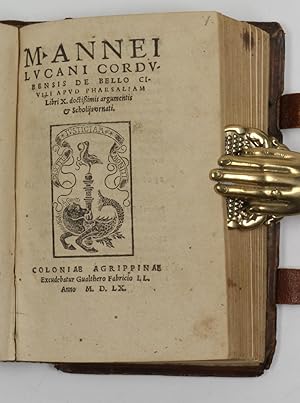

that whereby man hopes to obtain good from God, as from a friend. But not every kind of hope proceeds from charity, but only the movement of living hope, viz. 2: Hope and every movement of the appetite proceed from some kind of love, whereby the expected good is loved. This suffices for the Reply to the First Objection. Et hoc modo dicit Ambrosius quod spes est ex caritate. Et ideo, adveniente caritate, spes perfectior redditur, quia de amicis maxime speramus. Sed secundum ordinem perfectionis caritas naturaliter prior est. ita etiam et spes introducit ad caritatem, inquantum aliquis, sperans remunerari a Deo, accenditur ad amandum Deum et servandum praecepta eius. Sicut enim aliquis introducitur ad amandum Deum per hoc quod, timens ab ipso puniri, cessat a peccato, ut Augustinus dicit, super primam canonicam Ioan. Et ideo in via generationis spes est prior caritate. Primus autem amor Dei pertinet ad caritatem, quae inhaeret Deo secundum seipsum, sed spes pertinet ad secundum amorem, quia ille qui sperat aliquid sibi obtinere intendit. Imperfectus amor est quo quis amat aliquid non secundum ipsum, sed ut illud bonum sibi ipsi proveniat, sicut homo amat rem quam concupiscit. Perfectus quidem amor est quo aliquis secundum se amatur, ut puta cui aliquis vult bonum, sicut homo amat amicum. Amor autem quidam est perfectus, quidam imperfectus. It is in this sense that Ambrose states (Obj.

On the other hand, in the order of perfection charity naturally precedes hope, wherefore, with the advent of charity, hope is made more perfect, because we hope chiefly in our friends. ix), so too, hope leads to charity, inasmuch as a man through hoping to be rewarded by God, is encouraged to love God and obey His commandments. For just as a man is led to love God, through fear of being punished by Him for his sins, as Augustine states ( In primam canon. Hence in the order of generation, hope precedes charity. The first love of God pertains to charity, which adheres to God for His own sake while hope pertains to the second love, since he that hopes, intends to obtain possession of something for himself. Imperfect love is that whereby a man love something, not for its own sake, but that he may obtain that good for himself thus a man loves what he desires. Perfect love is that whereby a man is loved in himself, as when someone wishes a person some good for his own sake thus a man loves his friend. Now there is a perfect, and an imperfect love. Quia spes, et omnis appetitivus motus, ex amore derivatur, ut supra habitum est, cum de passionibus ageretur. Secundum igitur primum ordinem spes est prior caritate. Alius autem ordo est perfectionis et formae, secundum quem perfectum naturaliter prius est imperfecto. Unus quidem secundum viam generationis et materiae, secundum quem imperfectum prius est perfecto. In respect of the first order hope precedes charity: and this is clear from the fact that hope and all movements of the appetite flow from love, as stated above (I-II, Q. One is the order of generation and of matter, in respect of which the imperfect precedes the perfect: the other is the order of perfection and form, in respect of which the perfect naturally precedes the imperfect. I, finis praecepti caritas est de corde puro et conscientia bona, glossa, idest spe. Sed contra est quod apostolus dicit, I ad Tim. On the contrary, The Apostle says (1 Tim 1:5): The end of the commandment is charity from a pure heart, and a good conscience, i.e., from hope, according to a gloss. Sent., quod spes ex meritis provenit, quae praecedunt non solum rem speratam, sed etiam spem, quam natura praeit caritas. iii, D, 26) that hope proceeds from merits, which precede not only the thing hoped for, but also hope itself, which, in the order of nature, is preceded by charity. Sed sperare, secundum quod est actus spei, est quidam bonus animi motus. Dei, quod boni motus atque affectus ex amore et sancta caritate veniunt. Now to hope, considered as an act of hope, is a good emotion of the soul.

Dei xiv, 9) that good emotions and affections proceed from love and holy charity.

XVII, si habueritis fidem sicut granum sinapis, etc., ex fide est caritas, ex caritate spes. For Ambrose says on Luke 27:6, If you had faith like to a grain of mustard seed, etc.: Charity flows from faith, and hope from charity. Whether charity precedes hope? Utrum caritas sit prior spe Objection 1: It would seem that charity precedes hope.


 0 kommentar(er)
0 kommentar(er)
